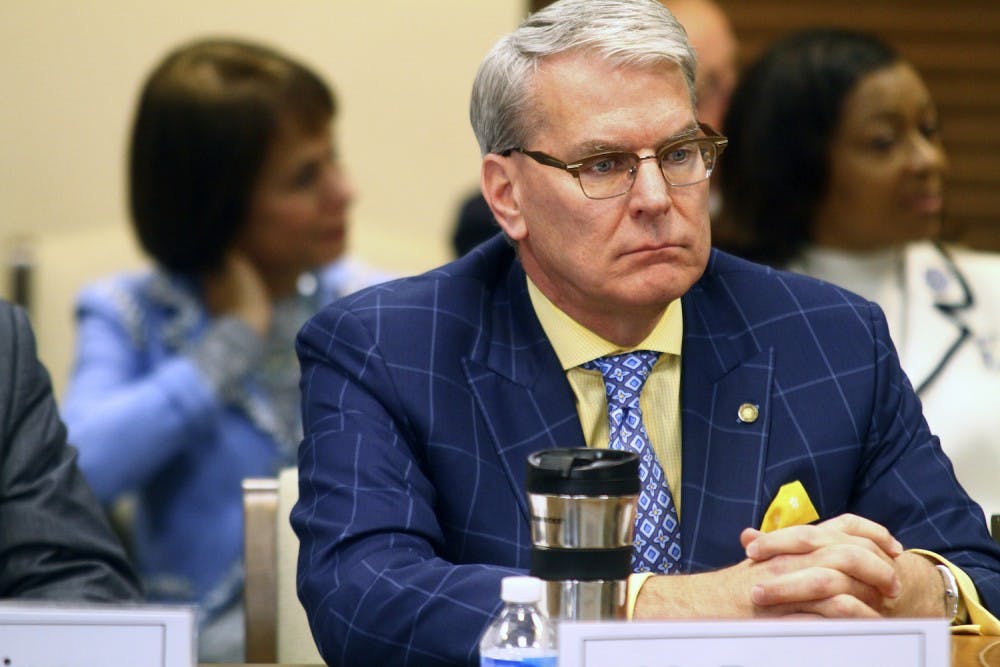The UNC Board of Governors Committee on University Governance met Thursday, reviewing the rights of University faculty to participate in political activities and — in closed session — discussing the recent $2.5 million settlement with the Sons of Confederate Veterans and the pending lawsuit filed by DTH Media Corp.
The group approved keeping minutes for the meeting.
Read more: Here's what you need to know about the DTH lawsuit and its legal implications
Open Session
At the William and Ida Friday Center for Continuing Education, Chairperson of the Committee David Powers led an open review of the UNC System Policy manual sections detailing the rights of University faculty to participate in political activities and hold public office.
The policy allows civic participation by UNC System faculty and political conversations in the classroom but prohibits conflict of commitment for employees that might hold government positions.
“First and foremost, public employees don’t give up their constitutional rights by engaging in public employment,” General Counsel Thomas Shanahan said.
The policy outlines permissible activities, he said, including the faculty's right to vote and express political opinions.
He said employees are able to hold minor political positions but are not permitted to work in politics full-time or receive an additional salary in such positions of more than $10,000.




